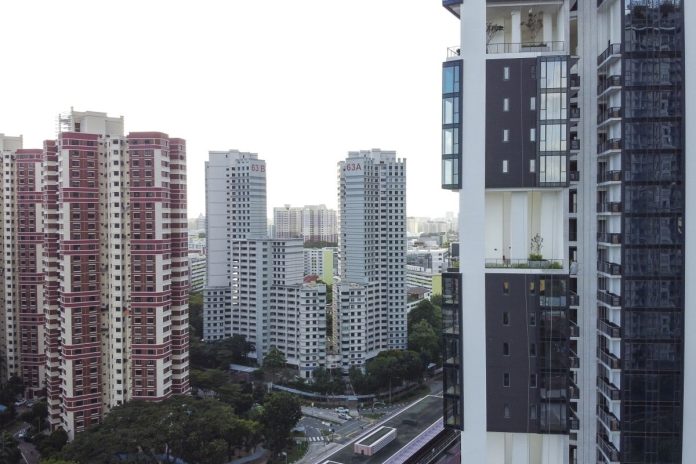Wall Street banks’ predictions for the year ahead invariably focus on investment themes and economic indicators. Not this year. A cursory glance at the 2025 outlooks reveals that US president-elect Donald Trump’s policy agenda, and its impact on the global economy and markets, is the overriding concern of investors.
Trump’s return to the White House has given rise to an intense debate about what his policies mean for growth and inflation. The US Federal Reserve’s decision last month to signal half as many reductions in interest rates this year as it had forecast in September, mainly because of concerns about the inflationary impact of Trump’s policies, is adding to the uncertainty.
What is clear is that economies with the largest trade surpluses with the United States and industries that are more sensitive to changes in interest rates are in the firing line. This puts real estate markets in Asia in a precarious position.
With the region accounting for seven of the 10 economies with the biggest trade surpluses with the US and the performance of many residential and commercial property markets strongly influenced by US monetary policy, Asian real estate could be in for a rough ride this year.
However, the adage that “all real estate is local” endures for a reason. Since the eruption of the Covid-19 pandemic, divergences and nuances in Asia’s property markets have become more apparent. There have also been surprises, especially in some of the most vulnerable markets.
While Trumponomics and the Fed’s response will have a strong bearing on sentiment in Asian property markets, government policies, real estate fundamentals, market idiosyncrasies and structural factors will prove more consequential.
In residential markets, supply-demand dynamics and relative affordability will continue to be the key determinants of prices and rents. In Singapore, demand for second-hand flats built by the Housing and Development Board (HDB), the city state’s public housing authority, was so strong last year that it contributed to renewed speculation about another round of cooling measures.
The sharp rise in the number of Singaporean citizens paying a premium for HDB resale flats has raised the possibility of the government introducing an additional stamp duty rate for Singaporeans buying properties worth at least S$1 million (US$730,000), even if they are first-time buyers. “If the [extra stamp duty] rates target even the first home, that would signify a major shift,” said Stacked Homes, a Singapore property editorial platform.
In Japan, one of the reasons the average price of new flats in Tokyo’s 23 central wards continues to hit new highs is the surge in land values and construction costs. Severe supply bottlenecks are driven by the return of inflation, acute labour shortages and soaring import prices because of the plunge in the yen. Other factors include exceptionally low mortgage rates despite the normalisation of monetary policy and the relative affordability of properties in Tokyo compared with other leading Asian markets.
Even in Australia, where average house prices in the capital cities and regions contracted last month for the first time in 22 months, lower-priced markets such as Adelaide and Perth are still growing at a rapid clip, up 13-19 per cent in the past year compared with a 3 per cent fall in Melbourne. CoreLogic points to “multi-speed conditions” and “buyer demand pushed towards lower-priced markets, which has, in turn, supported stronger growth conditions in these areas”.
In Asia’s commercial property sector, the specificities of markets and structural trends serve as sources of resilience. This shows why a nuanced view of the industry is important at a time when US economic and monetary policies loom large.
Concerns about a renewed decline in investment because of the fallout from higher tariffs should not be overplayed. One of the strengths of Asia’s commercial real estate markets is the depth and breadth of the domestic investor base. Not only do Asian buyers account for the bulk of transaction volumes, intraregional investment has been the main driver of cross-border transactions in recent years.
In China, Asian buyers have remained active. In fact, along with Singapore, China accounted for the largest share of Asian cross-border investment within the region in the third quarter of 2024, according to JLL. Hong Kong investment in mainland China was the most active route for cross-border capital in Asia-Pacific commercial property in the first three quarters of 2024, thanks largely to investments in the mainland retail sector, according to MSCI data.
Structural trends in Asian real estate are just as important. Fierce demand for digital infrastructure, fuelled in part by the artificial intelligence boom, is a strong tailwind for Asian property. One of the world’s largest digital infrastructure deals last year was the purchase by Blackstone and Canada Pension Plan Investment Board of Asian data centre platform AirTrunk for US$16.1 billion.
According to a report by Knight Frank last month, Malaysia was Southeast Asia’s leading data centre hub last year, with the southern state of Johor emerging as a global hotspot for development and investment. Although Malaysia is now grappling with the same resource-related challenges that led neighbouring Singapore to impose a moratorium on new data centres between 2019 and 2022, Nomura views the data centre boom in Malaysia as a domestic demand buffer against external headwinds.
While there is no room for complacency when it comes to the acute threats facing Asia this year, more attention should be paid to the varied real estate landscape in the region as well the diverse sources of resilience.





